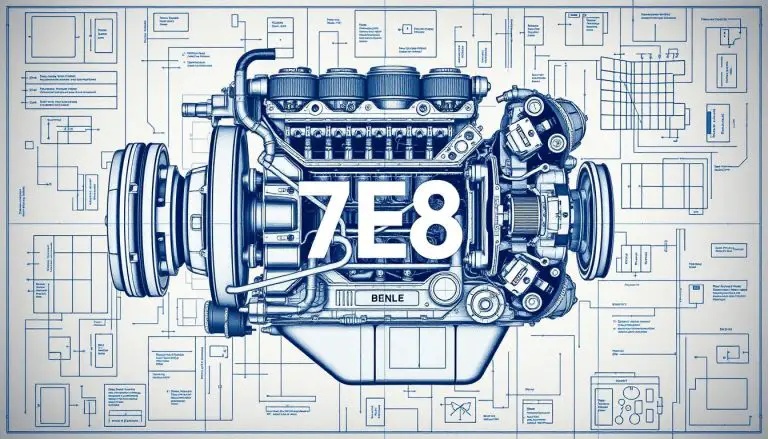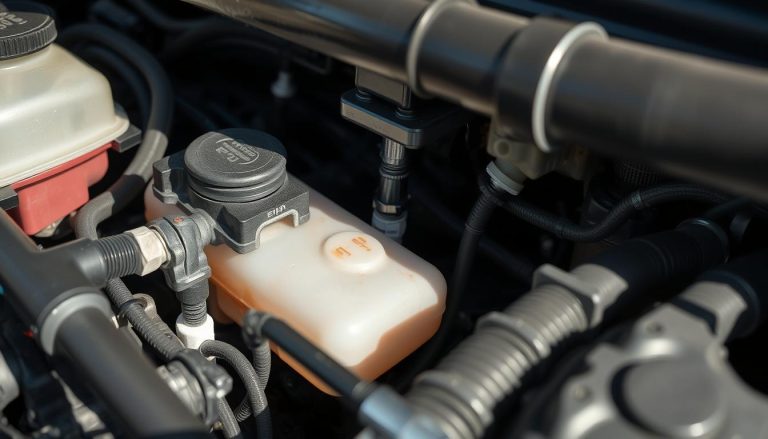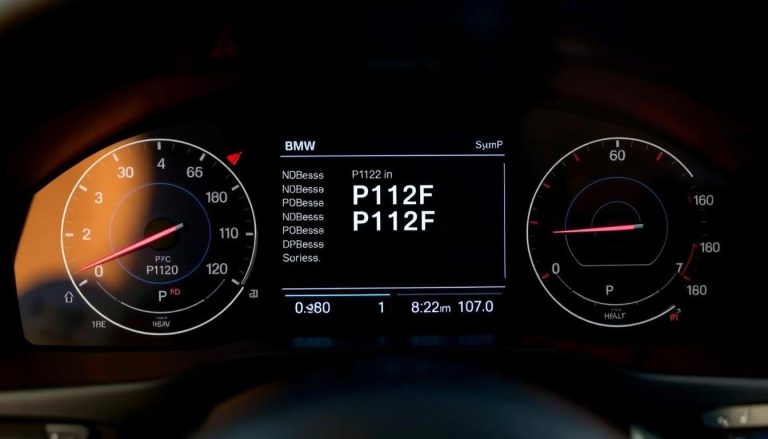When your car’s air conditioning system starts acting up, the last thing you want is to be left in the sweltering heat. Enter the P0530 code—a signal that something isn’t quite right with your A/C refrigerant pressure sensor. But what does it mean? Is it just a minor glitch, or could it lead to bigger problems down the line?
In this post, we’ll dive deep into everything about the P0530 code: its causes, symptoms, diagnosis steps, and how to address it effectively so you can get back on the road comfortably.
What does the P0530 code mean?
The P0530 code specifically refers to an issue with the A/C refrigerant pressure sensor “A” circuit. This diagnostic trouble code indicates that the vehicle’s onboard computer has detected a malfunction in the refrigerant pressure sensor system.
This sensor plays a crucial role in monitoring the pressure of refrigerant within your air conditioning system. It helps regulate how much refrigerant circulates, ensuring optimal performance and efficiency.
When there’s an issue, such as high or low voltage readings from the sensor, it triggers the P0530 code. Essentially, it alerts you that something needs attention before further complications arise.
Understanding this code is essential for effective troubleshooting and repair of your vehicle’s climate control system. Ignoring it could lead to costly repairs down the line or even leave you without a functional A/C unit altogether.
What parts can be affected by P0530 code ?
The P0530 code primarily points to issues within the A/C refrigerant pressure sensor circuit. This component plays a crucial role in monitoring the pressure of refrigerant within your vehicle’s air conditioning system.
When this code activates, it can indicate that the refrigerant pressure sensor itself may be faulty or damaged. In some cases, wiring issues such as frayed wires or poor connections can also come into play.
Additionally, if there’s low refrigerant due to leaks or improper filling, it could trigger the P0530 code as well. The A/C compressor relies on accurate readings from this sensor for optimal functioning.
Other parts that might be affected include the evaporator and condenser units. If these components are not receiving correct signals from the sensor due to malfunctioning circuits, they may struggle and lead to inadequate cooling performance.
What are the possible causes of a P0530 code?
The P0530 code can arise from several potential issues within the A/C system. One common cause is a faulty refrigerant pressure sensor. When this component fails, it may not accurately detect pressure levels.
Another possibility involves wiring problems. Damaged or corroded wires and connectors can disrupt communication between the sensor and the vehicle’s computer.
Low refrigerant levels also play a significant role in triggering this code. Insufficient refrigerant affects overall system performance and leads to misreadings by the sensor.
Additionally, an obstruction in the A/C lines could contribute to inaccurate readings, putting stress on various components of the air conditioning system. These factors combine to potentially create a cascade of issues that warrant immediate attention for optimal vehicle function.
What are the common symptoms of a P0530 code?
When the P0530 code triggers, several symptoms may arise. One of the most noticeable signs is a malfunctioning air conditioning system. You might find that your A/C isn’t cooling as effectively as it should.
Another symptom could be fluctuating temperature settings in your vehicle. This can lead to inconsistent cabin comfort, making drives less enjoyable.
You might also experience an illuminated check engine light on your dashboard. It’s a clear indication that something isn’t right under the hood.
In some cases, you may hear unusual noises coming from the A/C compressor or notice fluid leaks around components related to refrigerant circulation. Pay attention to these changes; they often signal underlying issues needing immediate attention.
What are the diagnostic steps for a P0530 code?
Diagnosing a P0530 code begins with scanning the vehicle’s onboard diagnostics system. A reliable OBD-II scanner will reveal the trouble codes present and provide valuable data.
Next, visually inspect the wiring and connectors related to the A/C refrigerant pressure sensor. Look for signs of wear, corrosion, or disconnection that could lead to faults.
After a thorough inspection, check the refrigerant levels. Low refrigerant can trigger this code due to insufficient pressure readings from the sensor.
Using a multimeter, test the electrical signal at the sensor connector. Ensure it’s within manufacturer specifications; abnormal voltage may indicate a faulty sensor or circuit issues.
Clear any stored codes after repairs and perform a road test. Monitor whether the P0530 code returns during operation to confirm successful diagnosis and repair.
How serious Is the P0530 Code? Can I continue driving with the P0530 code?
The P0530 code indicates an issue with the A/C refrigerant pressure sensor circuit. While it may not seem critical at first glance, ignoring this warning can lead to bigger problems.
Driving with a P0530 code can impact your vehicle’s air conditioning performance. You might notice that your cabin isn’t getting as cool as it should. This situation could leave you uncomfortable, especially in hot weather.
Additionally, unresolved issues related to the A/C system can strain other components and affect fuel efficiency. If the system encounters severe pressure fluctuations due to faulty sensors, more extensive damage may occur over time.
While it’s possible to drive short distances with a P0530 code illuminated on your dashboard, it’s wise not to delay repairs for long. Addressing this problem promptly ensures both comfort and safety while driving.
What are the repair solutions for a P0530 – A/C Refrigerant Pressure Sensor “A” Circuit ?
Repairing a P0530 code often begins with inspecting the A/C refrigerant pressure sensor and its wiring. Any signs of damage or corrosion can indicate a need for replacement.
If the sensor appears faulty, replacing it may resolve the issue. Make sure to use high-quality parts that match your vehicle’s specifications.
Next, check for any leaks in the A/C system. Low refrigerant levels can trigger this code as well. If you find leaks, repairing them is essential before refilling the system with refrigerant.
In some cases, testing and resetting related fuses might be necessary if electrical issues are present. Ensuring all connections are tight and secure is crucial too.
After making repairs, performing a diagnostic scan will help confirm whether the P0530 code has cleared successfully.
What other codes may be related to P0530?
When dealing with the P0530 code, you might encounter several related trouble codes that can shed light on underlying issues.
Codes like P0531 and P0532 are directly linked to A/C refrigerant pressure sensor performance. They indicate low or high voltage problems within the same circuit. These codes can point to potentially faulty sensors or wiring issues.
Other relevant codes may involve systems interconnected with your vehicle’s air conditioning unit. For instance, a malfunction in the A/C compressor could trigger additional diagnostic trouble codes such as P0599 or even engine-related warnings if overheating occurs due to cooling system failures.
Understanding these connections helps create a clearer picture of what’s going wrong under the hood. Addressing all related codes ensures comprehensive repair and optimal vehicle performance moving forward.
How much does it cost to diagnose and repair a P0530 code?
The cost to diagnose a P0530 code can vary significantly based on your location and the mechanic’s rates. Typically, you might expect to pay between $75 and $150 for an initial diagnostic test. This fee usually covers the labor involved in connecting your vehicle to a diagnostic scanner.
If repairs are needed, expenses can fluctuate widely. Replacing an A/C refrigerant pressure sensor generally costs between $100 and $300, including parts and labor. However, if there are additional issues like wiring faults or leaks within the A/C system, total repair costs could soar higher.
It’s wise to get multiple quotes from different auto shops before committing. Additionally, some dealerships may charge more due to their specialized services but often have more accurate diagnostics tools at their disposal.
How long does it take to diagnose and repair code P0530?
Diagnosing the P0530 code can take anywhere from one to two hours. This timeframe largely depends on the complexity of the vehicle’s A/C system and the technician’s experience.
If a thorough inspection is required, it might extend slightly longer. Technicians typically start with scanning for codes and inspecting related components like wiring and connectors.
Repairing issues tied to this code can vary widely in time. Simple fixes, such as replacing a faulty sensor or repairing damaged wiring, might only take an hour or so.
However, if more extensive repairs are needed—like refrigerant level checks or compressor replacements—the process could stretch over several hours or even days. Each situation is unique due to varying car makes and models. Patience often pays off when addressing these automotive concerns carefully.
Is the P0530 code specific to certain car makes or models?
The P0530 code is not exclusive to any specific make or model. It can appear in a wide range of vehicles, from domestic to foreign brands.
Many manufacturers use similar systems for their A/C components, which makes the P0530 code relevant across various platforms. However, some models may be more prone to this issue due to design quirks or manufacturing practices.
For example, certain GM and Ford vehicles frequently trigger this code compared to others. This might be linked to how their refrigerant pressure sensors are integrated into the A/C system.
It’s essential for vehicle owners to stay informed about common issues related to their specific car brand or model. Regular maintenance and awareness can help mitigate potential problems associated with the P0530 code over time.
How can I avoid a P0530 code?
Maintaining your vehicle regularly is crucial. Regular inspections can catch issues before they develop into bigger problems, including those that may trigger a P0530 code.
Keep an eye on the A/C system’s performance. If you notice any unusual sounds or reduced cooling efficiency, address it promptly. This vigilance can prevent sensor malfunctions.
Also, ensure proper refrigerant levels in your A/C system. Low refrigerant not only affects comfort but can also damage sensors over time.
Using high-quality parts during repairs and replacements matters too. Cheap components might save money initially but could lead to more significant issues down the line.
Comprehensive diagnostics whenever warning lights appear will help pinpoint potential problems early on and keep your vehicle running smoothly without triggering codes like P0530.
What happens if you ignore a P0530 code?
Ignoring a P0530 code can lead to several problems that may worsen over time. The A/C refrigerant pressure sensor is crucial for the optimal performance of your vehicle’s air conditioning system. When this sensor malfunctions, it can cause improper readings, resulting in inadequate cooling or even complete failure of the A/C system.
Continuing to drive with a P0530 code might not seem urgent at first, but neglecting it could escalate into more severe issues. These may include damage to other components like the compressor or evaporator due to low refrigerant levels or overheating. Furthermore, unresolved A/C issues can affect passenger comfort during extreme weather conditions.
Additionally, your vehicle’s fuel efficiency might decline because an inefficient air conditioning system often requires more power from the engine. This added strain on your engine could also lead to reduced performance and potential long-term damage.
Addressing a P0530 code promptly ensures that you maintain both your comfort while driving and the overall health of your vehicle’s systems. If you notice any symptoms associated with this code, consider having it diagnosed immediately rather than waiting for further complications.


